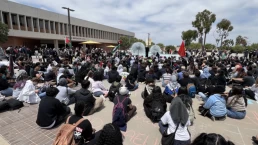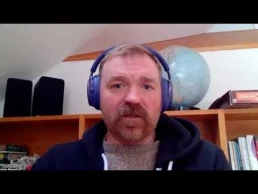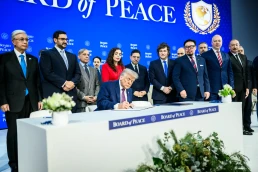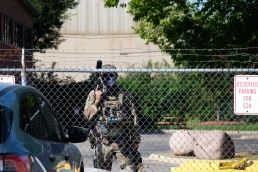Faculty, students, labor groups and the American Civil Liberties Union say the harder line on demonstrations may be discriminatory.
By Mark Kreidler, Capital & Main
It’s too early to know the full effect of enhanced restrictions placed on campus protests and demonstrations last month by the California State University and University of California systems. In most cases, classes are just under way, and the intensity of protest is not yet where it stood during last spring’s wave of pro-Palestinian actions.

But multiple interested groups, including faculty, students, labor organizations and, in one case, the American Civil Liberties Union have already expressed concern that the policies may be applied unfairly, singling out some campus demonstrations over others. That all speaks to the potential fallout of such behemoth systems essentially reacting to one particular set of protests.
“It’s a very top-down violation of academic freedom,” said Leda Ramos, a professor of Latino and Chicano studies at Cal State Los Angeles. “The intent is to create fear and criminalize labor and social justice organizing for students, faculty and staff in the statewide CSU system.”
California State University officials say no such thing is intended. “We have an obligation to ensure that all community members can access university property and university programs,” CSU spokesperson Hazel Kelly said when the system’s revised policy was announced in August.
As always, the devil is in the details.
Both CSU and UC have drawn a harder line on demonstrations after a spring filled with pro-Palestinian protests at campuses. In some cases, the new rules — referred to as time, place and manner (TPM) policies — restate regulations that are already on the books or exist under state law, like prohibitions on overnight encampments or unauthorized blockades of parts of campus.
Recent Posts
Can He Deliver? A Zero Hour Conversation With Graham Platner
February 6, 2026
Take Action Now Can a military vet turned oyster farmer pull off an upset—and deliver?By Rj Eskow and Graham Platner, The Zero Hour I’m joined in…
Trump’s Board of Peace Is a Dystopia in Motion
February 5, 2026
Take Action Now As it stands, the BoP charter elevates Trump to a position akin to a global dictator for life, unchecked—on paper— by any external…
The Actual Gavin Newsom Is Much Worse Than You Think
February 5, 2026
Take Action Now Newsom has drawn widespread praise for waging an aggressive war of words against President Trump. But few people outside of…
Judge Blocks Noem Effort to Bar Surprise ICE Jail Inspections as Detention Deaths Mount
February 4, 2026
Take Action Now A federal judge halted the DHS secretary’s renewed effort to block surprise inspections as deaths, overcrowding, and abuse…




